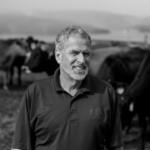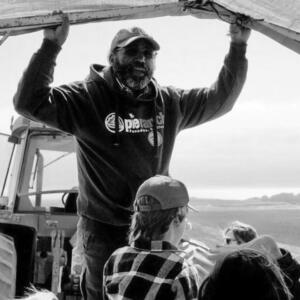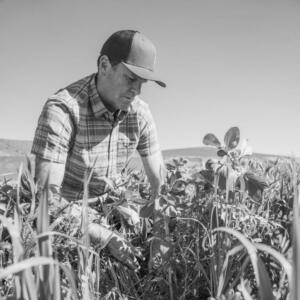OFRF Announces Applications Opening for 2026 Farmer-Led Trials Program
FOR IMMEDIATE RELEASE
Applications are now open for a new cohort of farmer-researchers to receive technical support in conducting innovative on-farm research trials across the country
SANTA CRUZ, Calif., Oct. 15, 2025 — The Organic Farming Research Foundation (OFRF) is excited to announce that applications are open for the next cohort of organic farmers who will be leading on-farm research trials with OFRF technical assistance in 2026.
OFRF’s Farmer-Led Trials (FLT) Program provides technical assistance and a small amount of funding to a select cohort of organic and transitioning-to-organic growers each year. Built in the spirit of curiosity and collaboration, the FLT program provides support to farmers so that they can try new practices, inputs, varieties, or animal breeds that can improve profitability and environmental sustainability. Applications are open October 15th through December 3rd, 2025. Selected participants will be announced in early 2026.
“By partnering with OFRF, we get to create a project that will help us determine the very best cover crops to solve some of our soil health issues. We get expert advice and feedback through all stages of the project, from planning, implementing, data collection, and interpreting results,” Tim Colby, farmer at Colby Farms in Papillion, Nebraska, and former participant in OFRF’s FLT Program.
Organic farming takes a great deal of dedication, financial investment, and continuous trial and error to adapt to an array of challenges, including pests, diseases, soil management, and climate change. To address the specific challenges that certified organic and transitioning-to-organic growers face, it is essential that farmers are at the center of efforts to identify problems and trial solutions. The FLT program supports farmers in developing a viable trial plan, provides support and accountability in data collection, and then helps farmers compile and assess results at the end of the trial. This equips farmers to not only implement the findings into their own farm practices but also to share the experience and knowledge gained with other producers.
“There is no limit to the interesting questions and thoughtful considerations that arise from organic farmers across the country. Our work at OFRF is to help bring the scope of the trial to an achievable level, grounded in the scientific method. With the results of each trial, farmers can make a small, accurate statement about what took place on their farm. Each statement is like a brick, adding one piece at a time to build the foundation of our understanding,” Mary Hathaway, OFRF Research & Education Program Manager.
To learn more or apply for OFRF’s Farmer-Led Trials Program, please visit our program page for updates and to read testimonials from previous cohorts. Additionally, we encourage curious farmers to consider attending the FLT Virtual Forum on Oct 21st, where three FLT farmers will share results of their trials, and to check out OFRF’s free guidebook, Farmers’ Guide to Conducting On-Farm Research, for guidance on structuring your farm experiments so the results are useful, reliable, and repeatable.
###
About Organic Farming Research Foundation
The Organic Farming Research Foundation (OFRF), headquartered in Santa Cruz, California, with a remote team based across the U.S., works to foster the improvement and widespread adoption of organic farming systems. OFRF cultivates organic research, education, and federal policies that bring more farmers and acreage into organic production. For more information about OFRF, please visit our website: www.ofrf.org.
Media Contact:
Ashley Dulaney, Communications Director, OFRF
ashley@ofrf.orf, (518) 310-6771
P.O. Box 440, Santa Cruz, CA 95061















